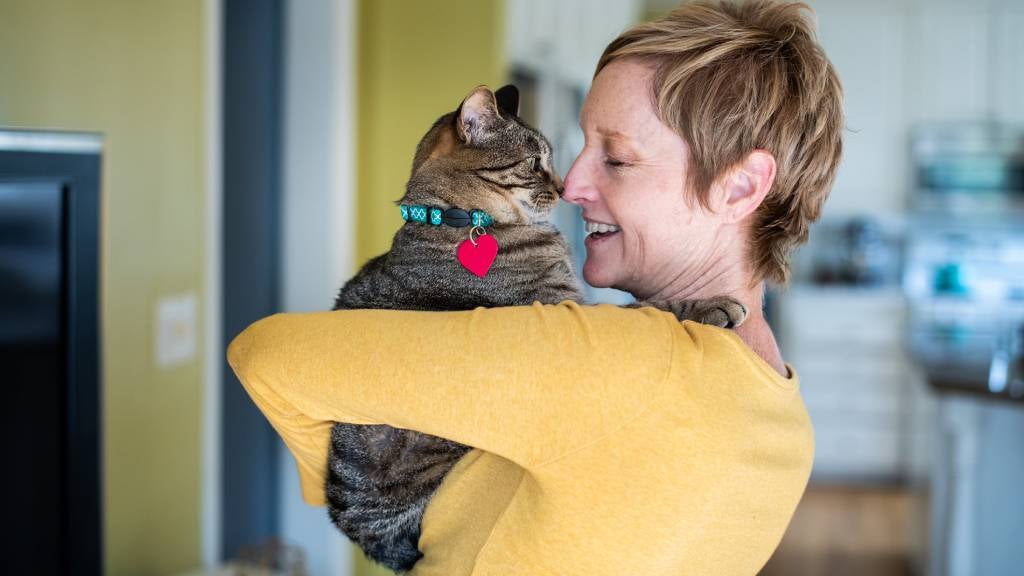6 steps for choosing a cat for adoption

Aotearoa has one of the highest rates of cat ownership in the world. However, living with a cat needs some careful thought. What’s going to suit you, the cat, what do you need to prepare before arrival, and how do you and your new cat adjust to life with one another?
Here are some factors to consider if you’re thinking about adopting a cat:
Cats are not for everyone
No matter how much you might love cats, you need to take a good look at your lifestyle before you commit. There’s some great information from SPCA about whether a cat is right for you. They cover everything from a cat’s lifespan, veterinary care, providing a safe and enriched environment, plus your legal responsibilities in caring for a cat. Your commitment needs to be for the cats’ life, so it’s best to be prepared.
Where do you get a cat?
There is a massive oversupply of cats in New Zealand. Adopting a kitten or cat from a shelter or rescue not only reduces the burden, but gives the cat you adopt a chance at the good life. From a shelter, they usually come desexed, microchipped, vaccinated and wormed as well. Contact a range of rescues (or breeders) to get an understanding of their vision and values and ask questions on how they rescue, treat and house their animals before meeting a cat that might be suitable. It’s also important to get a feel for the environment the cats are kept in, their general health and personalities. Be aware that shelter and breeding environments are generally not the same as a home - even if all the basic healthcare needs have been met. You should also avoid buying a cat online without having conducted any research or meeting the animal in person, at the rescue, foster or the breeder’s home!
Preparing your home
Will your cat live indoors, outdoors, or both? ‘Catios’ or a cat-proof fenced backyard will not only keep your cat safe from outdoor mishaps like fights and traffic-related accidents, it also keeps the local wildlife safe and avoids conflict with your neighbours. If indoors, you’ll need to think about how to meet your cats’ needs, while also being able to open a window without worrying about an escape. There’s some great tips from SPCA on preparing your home for a cat, and ideas for providing a good life for your cat.
Purchase the necessities
You’ll need a secure carrier for travel. Leave your carrier out to provide a safe and familiar hiding place while settling in. Find out what they’ve been eating and stick to the same diet initially. You’ll need separate bowls for food and water as cats are not keen on eating near their water source. The same goes for kitty litter - get what they’re used to. Make sure you provide at least one tray per cat in the house, plus one spare. Cats need the opportunity to scratch so invest in some scratching posts, it will also help protect the furniture! A good idea would be to combine it with a cat tree or castle because cats love to climb. Purchasing toys should keep them engaged and when it comes to grooming, tools will vary with coat type.
Organise a health check
Book in a health check with your veterinarian to make sure you’re aware of any health needs from the get-go. If they’re not already done, book in for desexing, microchipping, vaccinations, and pick up some parasite control. They can also help you with feeding, toileting, and grooming advice -don’t forget to ask about pet insurance too. Pet insurance helps take the worry out of being able to afford healthcare for your pet.
Time to adjust
Despite appearances, cats don’t like change but thrive on routine. They’ll often hide for a few days on arrival. SPCA provides some great information on how to manage the transition to your home, like setting up a safe haven in one room for them and letting them explore slowly. You can also try:
- providing something from the environment they’ve come from, the scent can help make your place less strange. Providing an unwashed jumper can help them get used to your scent too;
- letting them approach you first, and always give them the opportunity to retreat from a stressful situation;
- schooling up on cat behaviour so you can be on your best behaviour too.
There are some huge benefits to sharing your home with a cat, but it needs to be beneficial to both of you, and for life. Doing your research and being prepared makes it much more likely that will be the case. For those times when it’s not going to plan, seek professional veterinary advice early, and consider cover with SPCA Pet Insurance to help reduce the financial worry.
22 Nov 2021